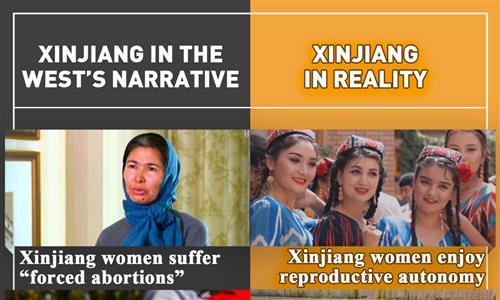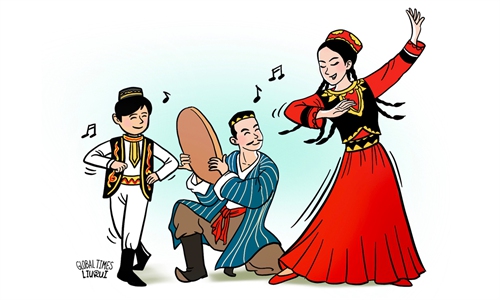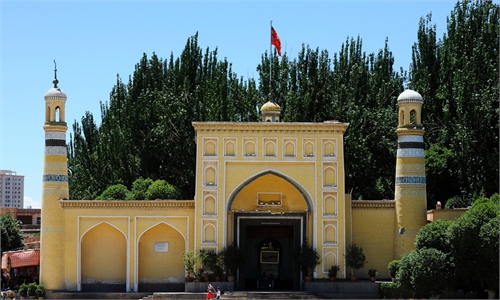Photo: Vitaly Podvitsk
After Ninestar and its seven subsidiaries were put on a list under the US' so-called Uygur Forced Labor Protection Act (UFLPA), the company sued the Forced Labor Enforcement Task Force, a multi-agency body led by the US Department of Homeland Security, in the US Court of International Trade, accusing it of acting in an "arbitrary and capricious manner in violation of US law" and arguing that the listing decision was taken "without offering any explanation or justification."
Now the legal fight is heating up, in part over who shares the burden of proof and the reliability of the evidence, the South China Morning Post reported on Thursday.
In a December filing, Ninestar claimed that the US government's decision lacked evidence and "applied a low standard of proof," and its basis was "retroactive." The company also asked the court to suspend the implementation of the government's action.
While the ultimate outcome of the case is unclear, it has already played a role in exposing the US roughness and lack of supporting evidence, letting the world know how brazen Washington could be in using lies to suppress Xinjiang industries and Chinese manufacturing.
It is no secret that the so-called forced labor and genocide claims in Xinjiang are utter lies made up by radical politicians, media and think tank scholars in the US and the West.
In recent years, Xinjiang has made great achievements in manufacturing development. In particular, large-scale mechanized production has become increasingly popular in most areas in the region, with the mechanization rate of Xinjiang's cotton sector at about 90 percent.
So how is "forced labor" possible? In the context of China-US tensions, playing the "Xinjiang card" is actually nothing but another tool the US has used to contain China's development. It wants to deprive local people of employment, creating de facto "forced unemployment" and thus disrupting the steady growth of Chinese manufacturing.
This is the fundamental reason why the UFLPA, turning a blind eye to the basic principle of the modern rule of law - the presumption of innocence - exercises the controversial presumption clause that requires enforcement authorities to presume that all goods "mined, produced, or manufactured" in whole or in part in Xinjiang are made with "forced labor" while forcing companies to incriminate themselves.
Because of this lie, products made in Xinjiang are collectively targeted and discriminated against by Western supply chains. If this is not a violation of the international trade order, then what is?
Even as Washington is obsessed about catering to its domestic political environment and strategic needs to suppress Chinese manufacturing, it is still important for Ninestar to defend its interests by resorting to legal action. Whatever the outcome of the case, Chinese companies need to have their voices heard.
Even if litigation is costly and doesn't guarantee winning the case, we still believe that more Chinese companies should seek clarity and challenge trade rules that carry political intentions through legal means.
Chinese companies should not accept this. We also hope that relevant industry associations provide more legal assistance and support to companies that were blacklisted by such unfair trade measures
RELATED ARTICLES





No comments:
Post a Comment